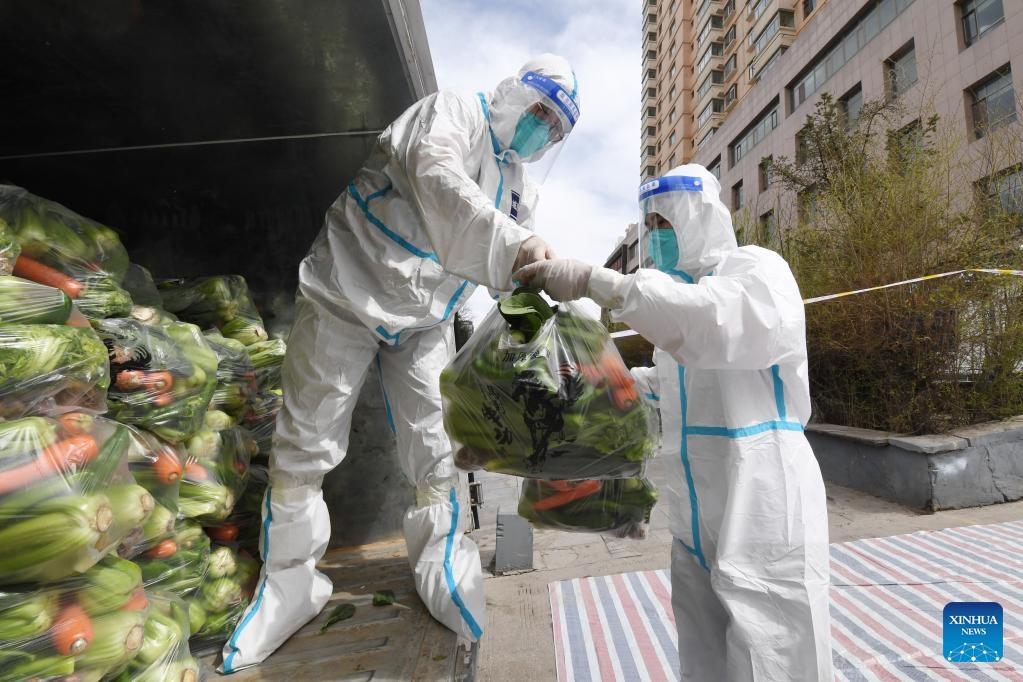Xining vows steps to ensure food delivery during static management

Staff members transfer free vegetable packs to be delivered to residents from a truck at the entrance of Xinning residential area in Chengxi district, Xining, Northwest China's Qinghai province, April 20, 2022. [Photo/Xinhua]
Xining, capital of Qinghai province, is working to increase food supply and stabilize prices to guarantee residents' livelihood as the city is under a static management due to the COVID-19 epidemic, local authorities said.
The city's Qinghai-Tibet Plateau Agricultural and Sideline Products Distribution Center, a major supplier of fresh food, was closed after three infectious cases were reported on Oct 20. Xining reported 75 locally transmitted infections, including 70 asymptomatic carriers, on Wednesday.
The city announced a temporary static management method, asking residents in main urban areas to stay home on Oct 21 to prevent the spread of the virus. Locals reportedly have complained that it was difficult to buy vegetables and meat even as prices continue to surge.
Chen Xiaoping, director of Xining's commerce bureau, said at a news conference on Wednesday that closure of the distribution center, where the latest outbreak started, has led to lack of food supply. The government has set up a temporary wholesale point in the west of the distribution center to deal with over 1,000 metric tons of vegetables daily, although the supply of fruit is still challenging, Chen said.
Besides, four temporary wholesale markets have been newly built in the city to send food to supermarkets, fresh markets and stores around communities.
By Tuesday, the city had an inventory of 580 tons of vegetables, 19 tons of eggs, about 5,000 tons of rice and flour, and 1,400 tons of cooking oil, which can meet demands of residents, data from the bureau showed.
Now, 39 fresh markets, 36 supermarkets and 161 vegetable outlets are open. Over 300 trucks are bringing vegetables to residents every day. However, due to lack of human labor, the efficiency still needs to be increased, she said.
In terms of rising prices, Chen said that Xining was located at high plateau, and about 80 percent of vegetables are transported from outside. Because of traffic management due to the outbreaks in many regions, vehicles face long retention time, so the cost has surged sharply.
Inspection groups have been set up to monitor prices and crack down on illegal behaviors, local authorities said. On Wednesday afternoon, three vegetable stores were punished. More efforts will be taken to stabilize prices and guarantee market order, they said.
By Chen Meiling
